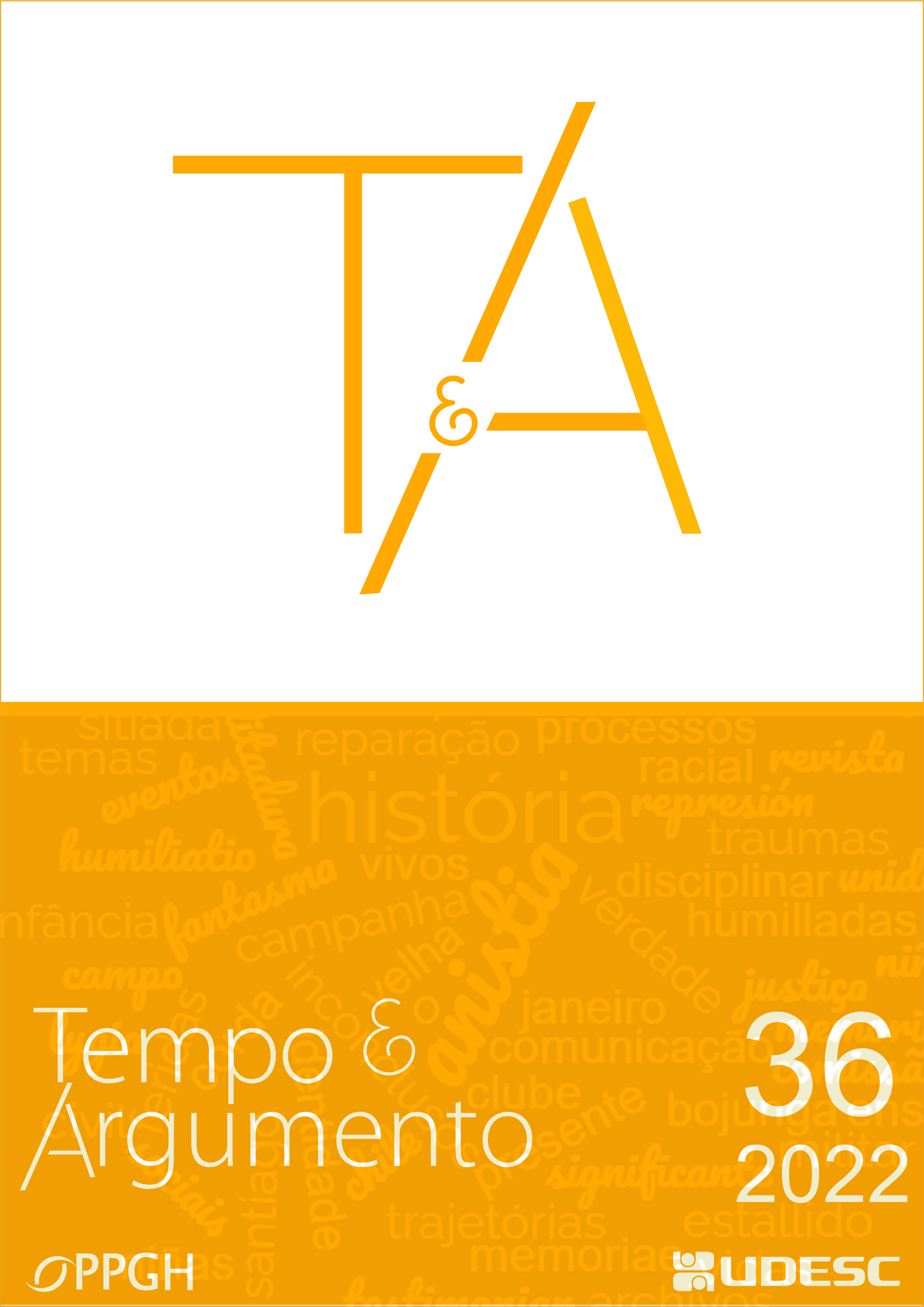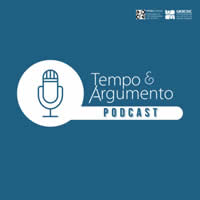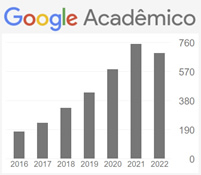Humiliatio memoriae. Humiliated lives and memories in Franco's-repression archives
DOI:
https://doi.org/10.5965/2175180314362022e0105Keywords:
Spanish Civil War, Franco dictatorship, memory, archive, historyAbstract
This article focuses its object of study on a historical source that can be considered a paradigm of the documents and registers created by authoritarian regimes. In this case, we are dealing with the documentation that the Franco regime initiated against its enemies during and after the Spanish Civil War. It is common within these processes to find personal and intimate writings that are used against their authors. Paying attention to these personal writings forces us to develop a method to reconstruct the fragmentary episodes of the past and reintegrate them into the historical narrative, in a different way to that which has been proposed by the archive as an institution that perpetuates the roles of the regime that originates these documents. The aim of the dictatorial regime was to condemn, humiliate and eliminate the enemy. However, it went further. The regime also intervened in the memory that would remain after the death of each of these people. This text is a sample of this situation. The analysis is based on one of the personal writings that were seized as evidence in one of these trials against the enemies. The very materiality of this document is used to act against its author and denigrate not only her life at the time, but also the memory she left behind for the future.
Downloads
References
AMELANG, James S. De la autobiografía a los ego-documentos: un fórum abierto. Cultura escrita y sociedad, Gijón, n. 1, p. 15-122, 2005.
BENJAMIN, Walter. Tesis sobre la historia y otros fragmentos. México, D. F.: Ítaca, 2008.
CASANOVA RUIZ, Julián. Una dictadura de cuarenta años. In: CASANOVA RUIZ, Julián (coord.). Morir, matar, sobrevivir: la violencia en la dictadura de Franco. Barcelona: Crítica, 2010. p. 3-53.
CASTILLO GÓMEZ, Antonio; MONTERO GARCÍA, Feliciano (eds.). Franquismo y memoria popular: escrituras, voces y representaciones. Madrid: Siete Mares, 2003.
DA SILVA CATELA, Ludmila; JELIN, Elizabeth (comps.). Los archivos de la represión: documentos, memoria y verdad. Madrid: Siglo XXI, 2002.
DA SILVA CATELA, Ludmila. Etnografía de los archivos de la represión en la Argentina. In: FRANCO, Marina; LEVIN, Florencia (comps.). Historia reciente: perspectivas y desafíos para un campo en construcción. Buenos Aires: Espacios del Saber, 2007.
DA SILVA CATELA, Ludmila. Territorios de memoria política. Los archivos de la represión en Brasil. In: DA SILVA CATELA, Ludmila; JELIN, Elizabeth (comps.). Los archivos de la represión: documentos, memoria y verdad. Madrid: Siglo XXI, 2002. p. 15-84.
DARNTON, Robert. Edición y subversión: literatura clandestina en el Antiguo Régimen. Madrid: Turner-México D. F.: Fondo de Cultura Económica, 2003.
FARGE, Arlette. La atracción del archivo. Valencia: Alfons el Magnànim, 1991.
FOUCAULT, Michel. La arqueología del saber. Buenos Aires: Siglo XXI, 2002.
GINZBURG, Carlo. El queso y los gusanos: el cosmos, según un molinero del siglo XVI. Barcelona: Muchnik, 1986.
GONZÁLEZ DURO, Enrique. Las rapadas: el franquismo contra la mujer. Madrid: Siglo XXI, 2012.
GONZÁLEZ VERA, Myriam. Los archivos del terror del Paraguay. la historia oculta de la represión. In: DA SILVA CATELA, Ludmila; JELIN, Elizabeth (comps.). Los archivos de la represión: documentos, memoria y verdad. Madrid: Siglo XXI, 2002. p. 85-114.
MARCOT, Francois. Voz de ultratumba. In: KRIVOPISSKO, Guy (ed.). Vivir a muerte: la última carta de los fusilados en los campos de concentración. Barcelona: Barril Barral, 2009. p. 7-24.
MAUD, Joly. Las violencias sexuadas de la guerra civil española: paradigma para una lectura cultural del conflicto. Historia Social, Valencia, n. 61, p. 89-107, 2008.
SIERRA BLAS, Verónica. Cartas presas: la correspondencia carcelaria en la guerra civil y el franquismo. Madrid: Marcial Pons, 2016.
TERRADAS, Ignasi. Eliza Kendall: reflexiones sobre una antibiografia. Barcelona: Universidad Autónoma de Barcelona, 1992.
VIRGILI, Fabrice. Les «tondues» à la Libération: le corps des femmes, enjeu d'une réaproppriation. Clio. Femmes, Genre, Histoire, [s.l.], n. 1, 1995. Disponible en: https://doi.org/10.4000/clio.518. Acceso en: 30 mar. 2021.
Downloads
Published
How to Cite
Issue
Section
License
Copyright (c) 2022 Tempo e Argumento

This work is licensed under a Creative Commons Attribution-NonCommercial 4.0 International License.
The articles published by the magazine are for free use, destined for educational purposes and not commercial. The copyrights are all granted to the magazine. The articles whose authors are identified represent the expressed opinion of its authors and not the official position of the Tempo e Argumento magazine or of the Postgraduate Program in History of the Universidade do Estado de Santa Catarina.




